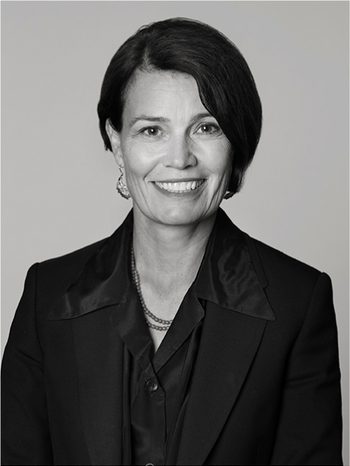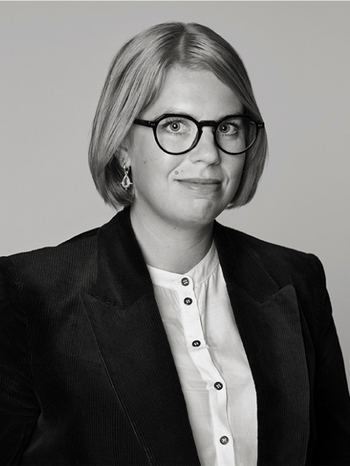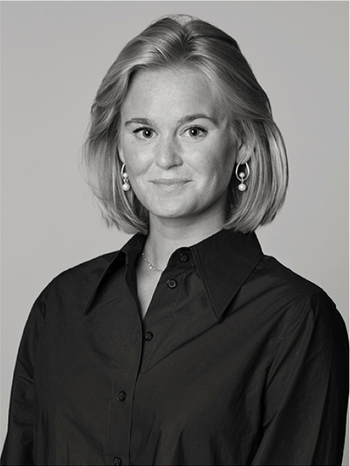Modern Art & Design presents Otto G Carlsund
Otto G Carlsund, "Tonens vibration"
Few Swedish artists are as mythical as Otto G. Carlsund. In the 1920s, he was one of the leading figures in the international avant-garde in Paris. He was highly respected and honoured by his international artist colleagues such as Ozenfant, Mondrian and his teacher Legér. He was the only Swede allowed to participate actively in the intense discussions on art theory in studios and bars around Paris. The 1920s was an important turning point in modernism, as the world war was over and new directions in art were sought. They wanted to create a new art for a new world. The circle around Legér's studio talked about creating art that could harmonize with modern architecture. Public and private environments could become new spaces for modern art.
Otto G Carlsund was born in St Petersburg, his father was a Swedish engineer and his mother was French. In 1924 he came to Paris through his friend GAN and was introduced to the 'Academie Moderne'. Carlsund spoke both Russian and French and acted as a spokesman between the students and Legér. Carlsund quickly gained a favored position as a talented and inspiring painter and theorist. Together with Ozenfant, he became one of the founders of the new movement "Art Concret" and at the Swedish-owned gallery "Mots et Images" in Paris, Carlsund had several critically acclaimed exhibitions. It has long been claimed that the 1930 Stockholm exhibition, for which Carlsund was commissioned to organize an exhibition, was a fiasco. Anders Wahlgren debunks this persistent myth in his book about Carlsund (Carlssons bokförlag, 2021, p. 199). The exhibition was already acclaimed during its time and is today considered one of the most significant exhibitions in the history of art in Sweden.
The late 1920s was a crucial time for Otto G. Carlsund. His forms were increasingly refined, as the auction's fantastic painting "Tonens vibration" from 1929 clearly shows. Here Carlsund has painted with right angles that are surprised by rounded shapes in a playfulness typical of Carlsund. The shapes marry each other and form a complete symphony. Otto G. Carlsund was exceptionally skilled at combining color and form. His compositions are executed with a precision and elegance that does not leave the viewer indifferent and feel as modern today as they did almost a century ago.

› Executed in 1929. Canvas 27 x 27 cm.
Anders Wahlgren writes "[...] Even now he is about to introduce a musical theme in his first plane geometric compositions. Carlsund has had this theme before, but now it has become more refined and stylized. The depiction is gone. He goes to concerts and listens to modern composers together with the Swede Gösta Nyström. He was originally a painter and then became a composer during the Paris years. Through him, Carlsund discovers the music of Duke Ellington, whose big band played in Paris. Rhythm was an important part of Ellington's music, as was juxtaposing the tone colors of the different instruments, seeking contrasts as in art. George Gershwin's Rapsody in blue took up the syncopation of jazz with classical sounds, which captivated the interested Carlsund. His two versions of the painting 'Tonens vibration' are like a physical illustration of a vibrating string evoking sound waves in the air. Sensitively composed in three shades of red with the white or black string at a slight angle across the canvas and completely two-dimensional, no depth in the image. The painting with the black stripe once belonged to the artist Jean Arp and is now in the Fondazione Marguerite Arp in Switzerland" (Anders Wahlgren, "Otto Carlsund", 2021, p. 174-175).
In her review of Liljevalch's 2007/2008 exhibition, Susanna Slöör writes: "[...] Some of the highlights of the exhibitions are the experiments with transposing music into images, as in the works "The Sequence of Tones" (1929) and "The Vibration of Tones" (1929). Here Carlsund clearly shows how one can expand one's understanding of, for example, abstract phenomena (such as emotions) by allowing a phenomenon to be expressed through an essentially different medium. This is in many ways the "trick" that all the different art forms share. The music that transmits and conveys the feeling in a sequence of notes or the characteristic sound of the cello that vibrates eternally in Carlsund's painted image."
Oscar Reutersvärd writes about "Tonens vibration": "This peculiar composition belongs to a small number of experimental pictures in which the artist, using 'rhythmically repeated lamellar forms', tried to visualize vibrating, acoustic phenomena. These compositions can be counted as Carlsund's most interesting results in his experimentation with audiovisual effects."

Viveka Bosson also writes about the auction's works in the section "Painted Music" in the catalogue "Otto G. Carlsund and the Concrete fiasco in Stockholm 1930"; "We remember Carlsund's visual experience of the tones of the cinema organ in New York in 1927. Bach's music had always inspired him and in 1929 he painted the beautiful Tonens sekvens s as a fugue, a rhythmically rising suite of blue circles and crescents that meet in a sounding yellow and orange, as if floating above a grey rectangle. The music of the painting allows the eye to glide slowly forward, diagonally across the picture surface like a film. Tonens vibration 1929 is like a sequence of sounds from vibrating violin strings under the caress of the bow or a tense bow shooting notes into the sky. Carlsund likes to associate with the rapid journey of sound and light through space. The harmony in these paintings can give an almost otherworldly floating feeling".

The work will be sold at Modern Art & Design
Estimate 2 000 000 - 2 500 000 SEK
Viewing: May 16 – 20, Bukowskis, Berzelii Park 1, Stockholm
Open: weekdays 11 am – 6 pm, weekends 11 am – 4 pm
Live auction: May 21– 22, Arsenalsgatan 2, Stockholm
To the work
Read more about Modern Art & Design and see the full catalogue
Requests & condition reports Contact specialist

Tukholma
Andreas Rydén
Varatoimitusjohtaja, Johtava asiantuntija, taide
+46 (0)728 58 71 39

Tukholma
Lena Rydén
Johtava taideasiantuntija, moderni- ja 1800-luvun taide
+46 (0)707 78 35 71

Tukholma
Amanda Wahrgren
Asiantuntija, moderni taite ja grafiikka
+46 (0)702 53 14 89





























